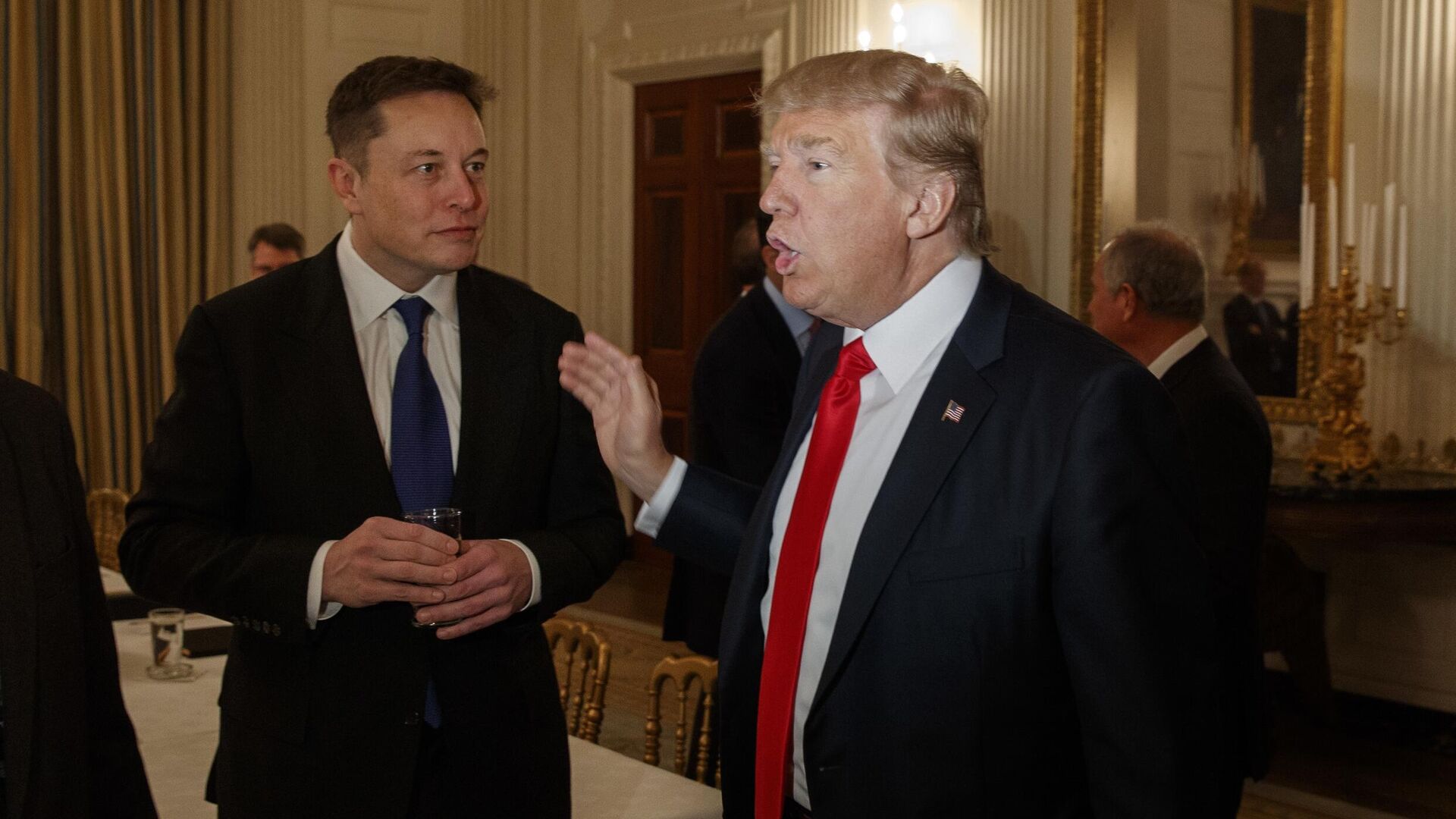'Oh My F**king God, Elon': Voice-Impersonating AI Generates Hilarious Politician Banter
19:25 GMT 14.03.2023 (Updated: 11:06 GMT 07.04.2025)

© AP Photo / Evan Vucci
Subscribe
So-called "deep fake" videos have the potential to be humorous, but have also been used to spread fake news and scam people. Now, governments are getting in on the action, too, seeking to use the technology as a psychological weapon.
A group of social media users are using a new voice-imitating artificial intelligence program to create remarkably convincing fake conversations between celebrities and politicians.
Several of their videos have gone viral recently, especially on TikTok. They often feature leaders such as Donald Trump, Joe Biden, and Barack Obama, as well as major public figures like Elon Musk and Joe Rogan.
One recent video showed several people seeming to be playing a round of “Among Us,” a type of party game in which players on board a spaceship must deduce which of them has been designated the impostor, and thus is on a secret mission of sabotage.
"The f**k are you talking about? I was in Medbay with Biden," the voice of Trump says after being accused of “venting,” a suspicious activity in the game that only imposters can perform.
“This is true, he was with me. I think it’s Joe,” the voice of Biden then says, accusing podcaster Joe Rogan of being the impostor.
“It’s not me, I was with Walter the whole time, on God,” the voice of Rogan declares, which is then confirmed by the voice of Bryan Cranston, the actor who portrayed “Breaking Bad” character Walter White.
The voice of Obama then chimes in, saying he was “on Cams the whole time.” The voice of Rogan then points the finger firmly at Musk, who confirms he is the imposter and outs Bush as the second imposter.
“Oh my f**king God Elon, you stupid snitch, eat a f**king d**k,” the voice of Bush replies as the video ends.
Other videos show similar topics, pretending celebrities are playing various video games and bantering in the voice chat with each other.
It’s unclear which AI they are using, but a variety of such programs exist, including Fake You and Resemble AI. Another AI maker, ElevenLabs, said in late January it would be taking action to clamp down on the misuse of its technology for “voice cloning.”
Splicing together existing clips of people saying individual words in order to create the illusion of them saying something else is nothing new: prominent examples include Star Trek characters singing “Let it Snow” and NBC journalist Brian Williams rapping famous hip hop beats. Going further back, clip “sound boards” were popular in the early 2000s with prank phone callers to make people believe they were speaking with celebs like Arnold Schwarzenegger.
The situation is analogous to “deep fake” videos, which use AI to paste the face of an individual onto another person's body in a realistic manner. However, while both can impersonate public figures in seemingly convincing ways, the voice imitations so far seem to be innocuous, focused on the amusement of hearing heads of state say slang terms or curse words.
By contrast, deep fake videos have been used to spread misinformation far and wide and are even being weaponized by the Pentagon.

